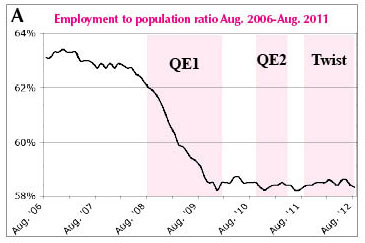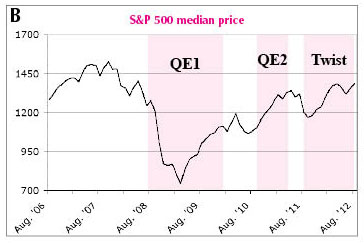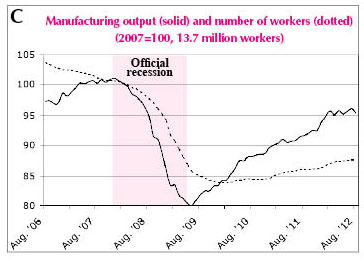An Electoral-Season Note to My Liberal FriendsWell into the silly season, the heat is turned up on the Left to fall in line and support the Democratic Party. On one hand, the independent Left is diminished by not being "in the game." On the other hand, the Left is still excoriated for having been "in the game" with Nader during the Gore-Bush Presidential race of 2000.
Specious arguments pile on top of specious arguments for why the spurned progressive, liberal, and labor voter should reward those who have disregarded their interests and broken their campaign promises. The arguments come in every size and shape, but always from self-described "friends" and "committed leftists." Oddly enough, they feel no compunction to explain why their past admonitions or their previous enthusiasms produced no real change in the political landscape when Democrats took power.
They smugly ask if independent-thinking leftists actually believe that there are no differences between the two parties. Only an idiot would respond defensively to this deceptive, distracting tact. Of course there are differences, just as there are differences between Pepsi and Coke. But the relevant question is: Are there any differences that matter, any differences that -- in the dynamics of two-party governing-- will effectively alter the plight of the majority of the US population for the better?
If the Democrats hold the Presidency, there is every reason to believe that they will do no more than they did when they had the rare dominance of all three governing branches. Indeed there is every reason to believe that Obama would relish compromising with the Republican agenda, an approach that he previously embraced even when he had no reason to do so.
On the other hand, should the Republicans gain the Presidency, the Democrats will, as they have in the past, show much more eagerness to demonstrate differences with Republicans and more vigorously attack Republican initiatives. They will offer a more leftward agenda since there is no danger of having to implement progressive policies. And they will embrace the Left insofar as it will mount the sharpest and most coherent attack on Republican policies, while doing so in a loud and demonstrative way.
A Democratic Party out of power is a belligerent, feisty party that will even spread some cash around to support left and progressive causes. Of course, that financial link secures a certain loyalty that perhaps explains the
enthusiasm shown for the Democrats by many of our progressive brothers and sisters in every election cycle.
For decades, we have been warned of the dangers wrought by Republican victories: an unfriendly supreme court, an attack on welfare, Social Security, Medicare, and Medicaid, war mongering and aggression, etc. Yet despite the handing of power back and forth for nearly forty years, the dangers have continued to deepen—the US has suffered a constant rightward drift since the middle of the Carter administration. Apparently, the "Vote Democratic" argument is only an argument about the pace of that drift.
But the greatest victims of the Democratic Party love-fest are truth and honesty. Take Paul Krugman, for example. His soap box in The New York Times has served to excoriate the Obama administration for doing far too little to bring the US economy back from the grip of crisis. On many occasions, he has warned of the dangers of closing the stimulus program and embracing austerity, policies that he acknowledges Obama has endorsed. Reviewers of his new book note the dominant theme of political inaction and the dangers that ensue.
Yet Krugman holds his nose and delivers a ringing endorsement of Obama's economic policies in a recent column: "But is the mess really getting cleaned up [by the Administration]? The answer, I would argue, is yes… So, as I said, the odds are that barring major mistakes, the next four years will be much better than the past four years… So Bill Clinton basically had it right: For all the pain America has suffered on his watch, Barack Obama can fairly claim to have helped the country get through a very bad patch, from which it is starting to emerge."
Following the lead of the old huckster, Bill Clinton, Krugman dutifully salutes the President with approval of the Administration's economic program contrary to his often-voiced disparagement. Krugman gets kudos for loyalty to the Party, but shame for despoiling honesty. If the next four years "will be much better" under Obama's stewardship, then why should we take Krugman's constant dire warnings at all seriously?
Democratic partisans will cry foul. For them, criticizing Krugman's waffling is another example of left "purity." But truth and honesty do not allow for shadings or gradations. The people deserve better. And they want better, as opinion polls consistently show.
The corruption of politics in the US is neither an aberration nor an accident. Instead it is the logical evolution of a political system in the era of state-monopoly capitalism operating freely and without the counter force of a strong, independent working class movement. The process of that evolution is revealing.
Looking Back
It is easy to forget that not so long ago there were currents and trends in the Democratic Party that represented more than the authority of markets, the interests of corporations, and the enthusiastic approval of military adventure. That is not to say that the Democratic Party was not a bourgeois party, a party of capitalism. It is and always has been. But there was a time when the party's course was disputed terrain; a variety of interests wrestled for its direction.
The Democratic Party's defeat in the 1980 election was presaged by an enormous fund-raising advantage by the Republicans. The Republican Party as a whole raised $130.3 million in the 1979-80 period over the Democrats' meager $23 million. Perhaps more than any other factor in the Reagan victory, this glaring inequity cast the mold for the future Democratic course. In addition, organized labor's decline and the falling electoral participation of poor and working people spurred new rightist trends in the Party.
Going into the 1984 election, the Democratic Party found itself torn between three ideological currents. While all agreed that an answer to the successful extreme right victory in 1980 was critical, factions differed on how to respond. These differences were fought out in the primaries.
Walter Mondale represented old-school Cold War liberalism. While drifting to the right to accommodate Reaganism, Mondale claimed to uphold New Deal values, though without offering any new social programs. He drew support from the entrenched leadership of the New Deal coalition: labor, minorities and liberals.
A new trend emerged around the candidacy of Gary Hart. Appealing to the well-off middle strata that moved into the Democratic Party in large numbers after the Nixon debacle, Hart proposed a "third way" (prescient of the Blair/Clinton developments to come) between traditional liberalism and the Reagan/Thatcher rightist turn. Hart and his ilk saw themselves as social liberals and fiscal conservatives, combining lifestyle tolerance with corporate friendliness and market-based policies. This third way promised to retain the cultural veneer of liberalism while gutting its Keynesian, welfare-state directed policies that supported and bolstered the well-being of workers and the poor. A not inconsequential bonus was that business-friendly policies would draw greater campaign contributions from corporations and the wealthy.
Some in the Party recognized the rightward drift of the old guard and viewed the launching of the new Reagan-lite model with alarm. Jesse Jackson, in a letter to former progressive flag-bearer, George McGovern, wrote: "Too many Democrats have gone along with Republicans on every Reagan policy." In response, Jackson launched a national primary campaign to win the Democrats away from the right turn that he correctly anticipated. With a base in the long-neglected African-American community, Jackson reached out to labor and other progressive constituencies.
Despite deeply embedded racism and Democratic Party sabotage, Jackson waged an impressive campaign garnering almost 20% of the vote and winning 5 primaries, all without substantial funding and Party support.
Nonetheless, Mondale won the nomination and went on to lose overwhelmingly to Ronald Reagan.
Ignoring the strong showing of the progressive Left, the Democratic leadership moved forward with what The Nation magazine previously dubbed "Reaganism with a human face" (6-26-1982).
The new direction for the Democratic Party was sealed with the creation of a wide-ranging policy statement in August of 1986. Entitled "New Choices in a Changing America," the slick, comprehensive document gave the imprimatur of the Party leadership to the path of economic conservatism, market-based policies, and limited government action. The Democratic leadership had heard the gospel of Reagan and found a way to call it their own. The answer to unemployment, poverty, and declining living standards was partnership with the private sector, rising worker productivity, and clearing the regulatory barriers to growth. While conceding that the working class and the poor had seen their living standards devastated since 1970 (including six years of Reaganism), the Democrats chose to march hand-in-hand with the Reaganauts.
Writing in September of 1986 (People's Daily World), Si Gerson, the Communist Party's long respected and experienced electoral expert, wrote:
Certain right-wing factions, supported largely by big money people, are particularly unhappy about the results [progressive wins in Senatorial primaries] and, above all, by the rising popular movement for peace and the increasing militancy of labor and its allies… They want the Democratic Party leadership's rightward drift to be set in concrete… They have… codified it in a 71-page statement released last week by the Democratic Policy Commission. Entitled "New Choices in a Changing America," the statement on basic questions simply parrots Reagan—even on points he has begun to mute somewhat… The underlying theory of the document is that the country has gone to the right and if the Democratic Party is to win the Senate in 1986 and the White House in 1988 it too must go to the right.
Gerson was correct to recognize this effort by the Democratic Party leadership to turn their party into a carbon-copy of Reagan's party. He recalled a previous warning by a venerated figure among Democrats:
Perhaps the clearest answer to this manifesto was delivered months ago by someone who can hardly be called a left-wing Democrat. Arthur Schlesinger Jr., the historian who was a fixture in the Roosevelt New Deal, branded as "Reaganite fellow-travelers" those who say "me-too" to Reagan policies. Writing in the New York Times of July 6, Schlesinger said: "Today me-tooism is an infection within the Democratic Party. It finds expression in quasi-Reaganite formations like the Democratic Leadership Council and the Coalition for a Democratic Majority… One can only add that for the Democrats' me-tooism is a recipe for disaster,"
Unfortunately, "Me-tooism," the strategy of shadowing the Republican Party and maintaining a position ever-so-slightly closer to the center, won the day and remains the approach of Democratic Party leaders to this day.
Notably, the Left mounted a noble effort in 1988, again behind the primary candidacy of Jesse Jackson. The campaign charged ahead, winning primaries and caucuses and surprising the old guard. But when the campaign began to draw significant and militant labor support, a stealth campaign of slander and racial fear diminished the outcome. Nonetheless, Jackson and the Left captured nearly seven million votes.
Like the quixotic Progressive Party campaign of 1948, the Jackson campaign was smothered by the effort of a Democratic Party resolute in following a path blazed by the extreme right and scandalizing the opposition with red- and race-baiting. Through fear and intimidation, Democratic leaders denied the emergence of a viable left bloc, a counter force to the domination of monopoly capital.
Lessons?
With the victory of corporate Democrats—fiscally conservative, socially liberal—the problem of fund-raising has been solved. In the 2008 election, corporate Democrats actually raised more than their corporate Republican counterparts. In this election cycle, they may well fall behind the Republicans. But they will never know again the vast inequity of 1980. Their fealty to monopoly capital ensures some measure of campaign-fund parity.
At the same time, the dominance of corporate Democrats and the Democratic Party leadership's comfort with this relationship, denies any insurgency within the Party, not that rebellion would be countenanced in any case. Those who continue to argue for "inside/outside" strategies will continue to find themselves outside—neither "in the game" nor with a coherent political strategy.
The only viable force capable of changing this regular exercise in futility is the labor movement or some subset of it. Organized labor has the resources and apparatus to launch a new, independent political vehicle that would neither be beholden to corporate power nor restrained by false friends. Necessarily, labor must stop throwing these resources at the feet of the Democratic Party; labor leaders must reject their current vassalage to Democratic Party officials. It's a tough challenge to work for these changes, but one far more worthy than hustling for political swindlers.
In the mean time, don't bother asking, I'm enthusiastically voting for Jill Stein of the Green Party. She was arrested recently trying to stop home foreclosures in Philadelphia. And your candidate?
Zoltan Zigedy
zoltanzigedy@gmail.com 


